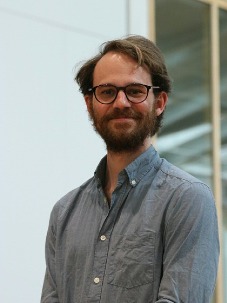Research profile Dr. G. (Georg) Wilding,

Georg Wilding graduated on 15 November 2022, Multi-scale Connectivity and Hierarchical Topology of the Cosmic Web. He is now working as a design engineer at ASML.
Project: Topological Analysis Methods for Big Data
This project is concerned with topological analysis methods for big data, and the insights this provides into the emergence of complexity in dynamical systems. The PhD student who will select this project will develop and use topological data analysis methods for the analysis of big data originating in cosmological and astronomical studies. It will be based on recent developments that have shown that state-of-the-art topological data analysis (TDA) methods, such as persistent homology, uncover new understanding and insights into the multiscale topological description of the Megaparsec weblike cosmic matter distribution. Betti numbers and topological persistence turn out to represent powerful means of describing the rich connectivity structure of the cosmic web and of its multiscale arrangement of matter and galaxies. This has shown that topological data analysis methods provide provide new means of understanding the shape of data and uncovering hidden patterns and relations. The PhD student will focus on using TDA to detect structure in data coming from large scale cosmological simulations and large cosmological redshift surveys, and use these to look into the homological properties of the observed Cosmic Web and study how these properties change in time. Intimately related to the singularity structure of the mass distribution represented in the data, the project should also enable the study of the connection with the dynamical evolution of the probed system. By means of sophisticated new reconstruction methods producing maps of the evolving mass distribution in the local Universe, the statistical and topological data analysis of real observational data may thus lead to a unique means of studying the phase-space dynamics and singularity structure of the cosmic web. This will yield unique insights in the dynamics of the cosmic web and culminate in a dynamical characterization of the observed distribution of galaxies in upcoming large galaxy surveys such as Euclid and SKA. The potential for additional applications is large, such as the issue of astronomical object classification in data coming from astronomical instruments. In this context, the PhD student will interact with other COFUND PhD students who need advanced methods for understanding the shape of their data.
Keywords: Topological data analysis, Cosmology, Astronomy, Big Data
Fields of expertise involved: Algebraic Topology, Computational Geometry, Cosmology, Astronomy
| Last modified: | 10 May 2023 11.01 a.m. |
